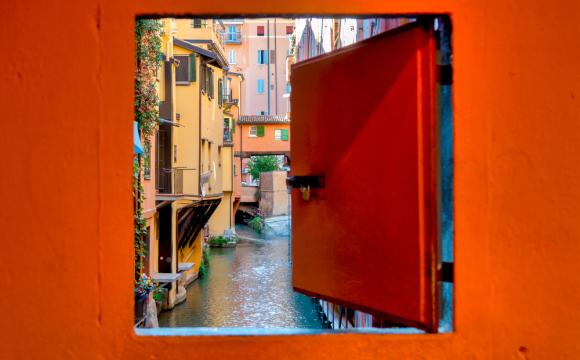It’s no surprise that Italy is a popular choice for foreign entrepreneurs. It’s a center of excellence for many industries, including fashion, design, art, cuisine, and tourism — all industries which offer a wealth of opportunities for companies looking to tap into the vibrant Italian market. Additionally, the country's well-established networks of suppliers, distributors, and industry professionals can provide valuable support for businesses looking to grow and expand.
Despite the country’s myriad charms and attractions, however, it’s not always the most straightforward when it comes to opening a new business. Paperwork and jumping through hoops can be tricky at the best of times, more so when it’s in your non-native language with procedures you may not be familiar with. However, there’s still plenty of opportunity to start your own small business if you have a little know-how.
So, you might already live in Italy and have a bright idea for going it alone, or you may be based overseas and dream of moving to Italy to open a company of your own. Either way, the most important thing is to have all the information at your fingertips so you can make informed decisions every step of the way. Lexia Avvocati firm specializes in helping nascent entrepreneurs, start-ups and creative ventures to do exactly that.

To get you going, Lexia’s team of lawyers have shared a few pointers for those in the early stages of launching a business, spelling out things you might not have considered, or might be aware of but have no idea how to navigate.
1) Think carefully about what kind of business you’re planning to open.
It may sound obvious, but the legal requirements vary hugely depending not only on where you’re coming from, but what sort of industry you’re looking to open. “The majority of requests that our clients submit to us refer to opening companies in trade, wholesale, or consulting,” explains Elmira Shahbazi, Head of Foreign Direct Investment & Corporate Service at Lexia. “Trade is more complex, as it requires obtaining a regular residence permit as well as residence on Italian territory.”
On the other hand, it’s much simpler if you’re establishing a consulting company of some sort. This can be consulting of any kind: IT, marketing, construction, tourism... the list goes on. In these cases, the procedures for non-EU citizens are greatly simplified. “There are, of course, countless situations, businesses, and specific cases,” Shahbazi is clear to emphasize, which is exactly where Lexia’s many years of expertise come into play.
2) Know what qualifications you need.
Shahbazi points out that for the types of consulting businesses listed so far, it is not necessary to have specific educational qualifications. In the food sector, on the other hand, the rules are far more rigid when it comes to certifications. “Not everyone is aware that if the business involves the preparation and sale of food, it is necessary to hold specific degrees or recognized certifications. Several businesses require special licenses to be started.” A consultation with LEXIA can clear up any questions you might have on a case-by-case basis.
3) Be aware of Italy’s decreto flussi immigration quota.
If you are not part of the European community, the path to opening a business may prove more of a struggle. Shahbazi cites “Italy's immigration policy and its infamous decreto flussi, which each year sets a maximum number of entry quotas in Italy for certain types of visas.”
Shahbazi advises that the most practical solution for non-EU citizens is to appoint an Italian administrator, or at least an administrator with a regular residence permit. However, regular residence in Italy for a few years, and having an Italian bank account ahead of establishing a company, is the easiest way to avoid further paperwork at the outset.

4) Consider which cities will best set you up for success.
In some spheres, such as wholesale trade (import and export), the processes may vary a lot depending on where in Italy you want to set up your company. For example, Milan and Bologna offer entrepreneurs more flexibility than many other Italian cities, Shahbazi says, so procedures are faster and less complex. If you settle on one of these cities, Shahbazi believes it is a good idea to connect with an experienced lawyer who can also guide you in your geographical choice, “in a way that is therefore functional not only for business, but also for the facilitation of obtaining documents.”
5) Check reciprocal arrangements.
The first step when opening a business in Italy (if you come from outside the EU) is always to check the reciprocal agreements between Italy and your home country. Again, a lot of reciprocal relationships depend on the type of business you intend to open.
A business model Lexia handles a lot is the purchase of a property in Italy by a foreign national, to be earmarked as a B&B or holiday rental. Shahbazi advises that the “variables that affect the establishment of a company in Italy are often unique and peculiar: therefore, it is always essential to carefully evaluate each case.”

6) Establish an SRL (or SRLS).
Finally, it’s good to have a basic understanding of the set-up process before embarking on any business venture. The most common type of company in Italy is the srl or srls (limited liability company or simplified limited liability company). These can be used for carrying out almost any type of business, they have limited liability for share/ quota-holders, and the sum of the shareholders' contributions is the share capital, which can be just €1. According to Lexia, the procedure for establishing an SRL can be briefly summarized in the following points:
- Register directors and shareholders with Italian tax authorities, in order to obtain an Italian tax identification number (known in Italian as your codice fiscale).
- Execute the articles of association through a public deed, which must be signed in front of a Notary Public. It can be done personally, granting a Power of Attorney to — for example — an Italian lawyer, or online through a virtual meeting with the public notary.
- Obtain a Company VAT number (a Partita Iva), which is issued by the Agenzia delle Entrate.
- Get the certificate of incorporation (this is called visura). In order to obtain this, you’ll be required to send all previously obtained documents to the Chamber of Commerce.
- Open a bank account for the company.
If all this sounds promising, and you’re interested in going to the next step, get in touch with LEXIA’s qualified team of lawyers to set up a consultation.
Lexia Avvocati is a leading Italian independent law firm specializing in corporate law. Among its many departments and practices, the division dedicated to foreign direct investments and immigration is one of the core focuses of the business. For more than 10 years the department has been supporting foreign entrepreneurs in opening and expanding their businesses in Italy, as well as providing immigration services (VISAs, residence permits, citizenships, and relocations services) for everyone looking to reach Italy from outside the European Union.













